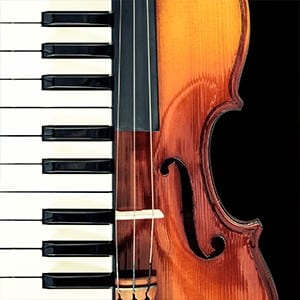PREDICTION 2: Rising cost of music degrees
As we enter a new decade, I thought it would be fun to write a 5 POST SERIES, predicting the changes in the music industry for the next 10 years, based on my observations of the world I can see around me.
If any of you have a good memory, please submit your score card to me in 2030. I don’t have a crystal ball, but many of my last decade predictions (certainly not all of them) have come true. So here goes.
Can you afford a music degree leading to an unpaid career?

The big music academies and conservatories shift to career oriented education. This has been a long time coming. In the last decade, we have already seen this happen; lots of savvy, smaller music academies actually starting to teach courses that give musicians tools for a modern music industry.
Schools started to teach things like “sound design”, the things that made the Hans Zimmers. Or “songwriting” and “production”, making a big shift away from an education industry that only ever focused on purist classical art forms. This was a commercial move so that young students could actually prepare for a varied career in music.
The reality is that most big players in the modern music world, are self taught in these skills since there are still very few places teaching them. At the London Contemporary School of Piano, we are seen as a bit “out there” for teaching students how to read lead sheets and improvise. And yet, we are planning a far more adventurous syllabus moving into the next decade.
Even many of our “progressive” schools have very conservative outlooks on teaching jazz and pop. The big mistake made by many forward thinking music academies has been to teach jazz as if it were classical music, purely from a historical musicology angle, rather than a practical one.

My prediction for the next decade involves the big famous academies, with a big name and long legacy. They have been able to stay in the classical past, teaching music as if it were a century ago and maintaining the historical classical art form. This will obviously still continue because there continues to be demand.
However the new student enrolment paradigm will shift. Students will start to wonder: ‘Why am I going into a massive student debt when:
- I won’t learn any improvisation.
- How to record myself professionally.
- How to place a microphone on my instrument or to mix my sound in a studio.
- How to design sound or compose soundtrack music with my instrument?
The soundtrack industry is going through massive expansion. Musical kids will reject the traditional academies in droves for a more pragmatic existence. We already have an overload of talented and phenomenal concert pianists, who have every mainstream concerto under their fingers. Yet TV producers are desperate to find affordable original music for their 25 part Netflix series, which will pay some decent royalties.

The big academies will feel this real world pressure, but they are already over a decade behind. The last decade saw an explosion of high quality contemporary music education. These new organisations have a lot of experience teaching this new stuff.
The big music academies will make the classic mistake of retraining a very unenthusiastic bunch of staff members how to play music that they don’t like at all. The bureaucrats that run these massive organisations, will struggle to know what to do, or even know what it is they are doing.
One powerful solution to this massive shift in our education culture will rely on cross-culture. Pop musicians getting classical training to attain an edge in their technique, while classical musicians will utilitse their skills for popular music. The traditional institutions often resent the less academic forms of music making, and meaningful change in their syllabus will be painful and possible come too late.
One example is a guitarist friend of mine. He composes for BBC documentaries. He’s a very talented, self-taught orchestral sound designer and composer. You would have heard his stuff on many classic shows.
He wanted to polish his skills by self funding a composition degree at a “top notch, established” academy in London which I won’t mention. He was declined because of his lack of experience in academic polyphony. (I won’t explain what that is) These are the people,these academies now need to hire. Digest the irony of that! He was willing to pay his way in there with no government loan. This is not sustainable!

In the classical world, I often see articles lamenting the fact that the British kids aren’t winning the big piano competitions. The reality is that British parents are a practical bunch. The ones with exceptionally talented pianist kids aren’t even going to the big academies. They are opting to home school into a musical career.
Why spend thousands on your musical training when you can access the best teachers via their living room piano for £70 per hour, or find a local classical pianist. They are not in short supply!
Make no mistake, we won’t see the end of our big classical academies. Classical music will continue to thrive as it always has and always will. However, their customer base will change, as massive student debts is not a great way to start a low-paying career.
For many it will become unaffordable. Only the wealthy kids, with a rare passion for classical arts as well as the means to pay upfront fees, will become the key customers of the traditional schools, that are trying to find a place in contemporary and classical training.
Add to that, some of the cheaper but culture rich Eastern European classical academies will open their doors to international students, creating more pressure for the big name international institutions. Some of the music academies in Eastern Europe have been funded by their governments, have huge cultural heritage and have been more isolationist. As they enter the global university world and start marketing their legacy courses, it will further disrupt the big traditional music academies.

